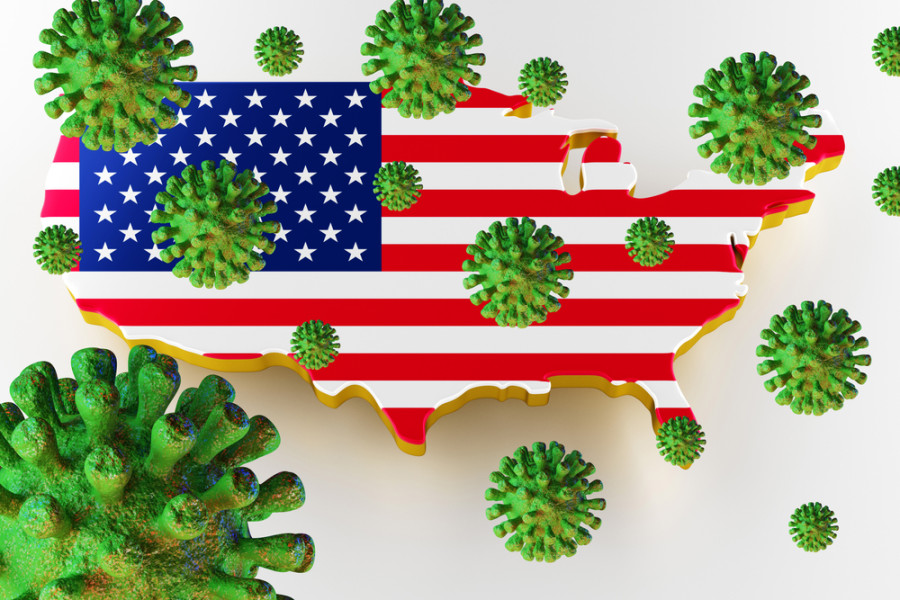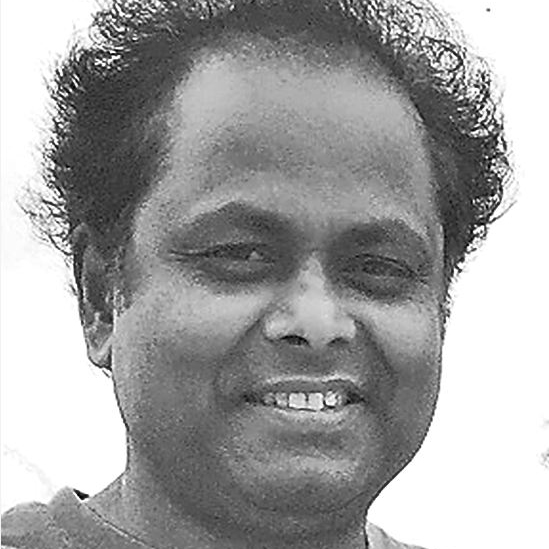Columns
We shall overcome
Faced with this unprecedented virus, how long will it be before America makes a vaccine and anti-viral drug?
Pramod Mishra
The Covid-19 pandemic has enveloped the globe with suffering and fear. No pandemic before nor any disaster or threat of war in history (including World Wars I and II) compares with the geographical reach and speed of this catastrophe. It appears as if the global village of houses (countries) made of bamboo and thatch has caught fire, and the fire has been leaping from one house to another, from one country to another, one province, county and town to another.
First in Wuhan, then it leaped to Italy, to Seattle, to New York while small fires leaped and caught all over the world wherever human kindling took them. The United States’ count of coronavirus infections as of this writing has touched almost 400,000 and the number of deaths topped 10,000, reaching a higher and higher number. Who knew when the world first heard about this epidemic causing local havoc in Wuhan, China, in early January that it would turn into such a global conflagration by mid-March? Who knew when 80,000 got infected and more than 3,000 died in China in early March that the death toll would cross 10,000 within a month in the United States?
Indomitable people
And, above all, who thought that it would bring New York City, the publishing and finance capital of the world, down to its knees? So much so that New York Governor Andrew Cuomo, the son of the tough Italian American governor of New York, Mario Cuomo, as tough as his fellow New Yorkers, would call upon the world in desperation for help—for healthcare workers, personal protective equipment and ventilators?
Americans, a proud and indomitable people, seem cowed and are sheltered in their houses. Americans had never experienced such a threat before all at once everywhere, not even during the 1918-19 Spanish flu pandemic. No Pearl Harbour nor any 9/11 had shaken Americans everywhere as this pandemic has done now.
Why did the disease spread so fast and on such a scale in the United States? I’m sure scientists, statisticians and academics who do those sorts of studies will one day write the history of the spread of this virus and enumerate the reasons. But for even an observer of American society, a few factors appear quite obvious. New York City and its vicinity and the West Coast are first hubs of world travellers from all over the world, including China.
Hundreds of flights came from China alone, bringing loads of virus carriers, both Americans and visitors. It spread faster in a densely populated city like New York because it was easy for the virus to spread from person to person through weekend parties, metro commutes, and everyday social mingling. Interpersonal conversation between and among friends and strangers is a highly prized social event for Americans. Over tea/coffee, lunch, dinner, Americans in cities like to talk and exchange ideas, perspectives—and aerosols/droplets loaded with germs got transferred with little effort, especially now that we know that asymptomatic virus carriers can shed this virus, and that this virus doesn’t show any symptoms in about half of the infected people.
Social distancing is anathema to Americans. Traumatic memories of ostracism, segregation, and anti-social behaviour in American society and history come to mind when trying to separate oneself from others—and mainstream Americans have fought against these history’s sins all through the history of the republic. And then, as a colleague said, Americans don’t like to obey orders and instructions from the government when it comes to personal behaviour; they love their liberty—life, liberty and the pursuit of happiness enshrined in America’s founding documents.
Because of sanitised living, Americans’ immune system becomes vulnerable to infections. Whenever I visit Nepal and India, even a minor lapse in caution regarding food and water has made me sick—fever and diarrhoea are common illnesses that Americans take in their stride when travelling abroad. Naturally, resistance to germs/pathogens has become low in comparison to people in more natural environments where exposure to everyday germs in dirt and mud is part of growing up, as I grew up in my Morang village. Add to these the outsourcing of manufacturing and political self-complacency at the national level, the United States got ambushed by this virus.
Mighty power
So, from the tech giants of Silicon Valley to the mighty corporations of New York, America appears helpless, scared despite efforts to cheer up through light and sound—and the ubiquitous assertions of TV anchors and leaders, ‘We are all in this together’. But the question one inevitably asks is this: The mighty power that decided the fate of World Wars I and II through D-Day in Europe and Hiroshima and Nagasaki in the Pacific sector, can that power be cowed and rendered forever helpless? What of its national labs, hundreds of world-renowned universities and their scientists, the pool of talent gathered from all over the world, and the might of individual and collective capital—and a history of innovation and problem-solving since America’s founding?
If the distance was far, America invented the automobile. If the automobile proved inadequate to overcome distance, how about airplanes? Similarly, faced with this unprecedented virus and its mercurial nature of hiding and spreading, how long will it be before America makes a vaccine and anti-viral drug? And, above all, rethinkS the strategies, priorities and directions of politics, government, capitalism—heck, everything? The ravages of the novel coronavirus will surely be a wake-up call for a paradigm shift in doing things in America.
***
What do you think?
Dear reader, we’d like to hear from you. We regularly publish letters to the editor on contemporary issues or direct responses to something the Post has recently published. Please send your letters to [email protected] with "Letter to the Editor" in the subject line. Please include your name, location, and a contact address so one of our editors can reach out to you.




 11.12°C Kathmandu
11.12°C Kathmandu















